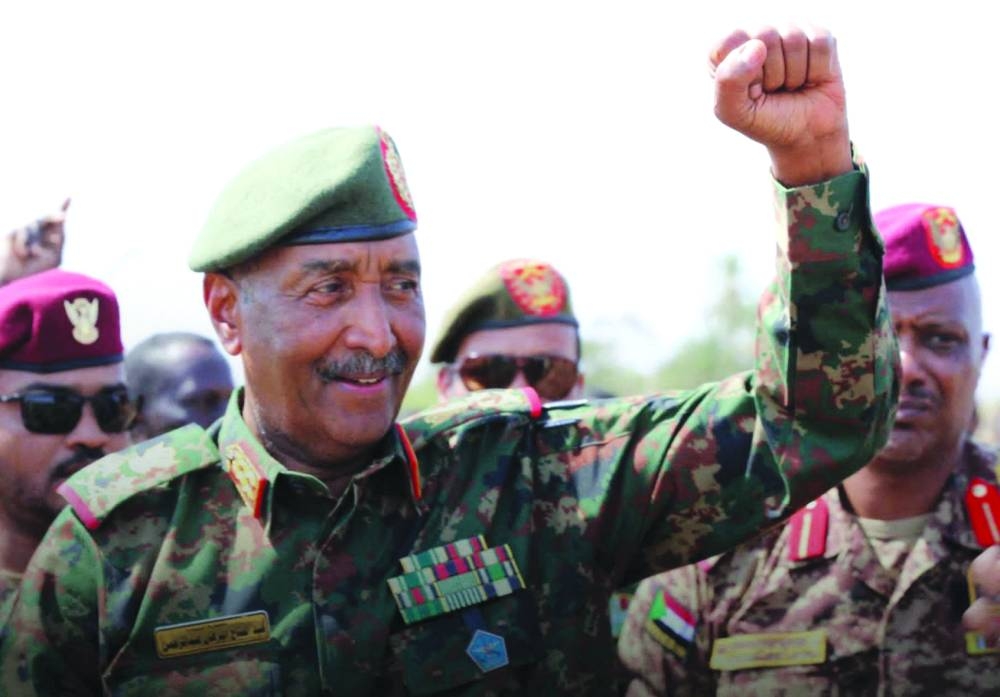Sudan’s army chief Abdel Fattah al-Burhan arrived at Khartoum’s presidential palace yesterday, declaring the capital “free” of the paramilitary Rapid Support Forces after nearly two years of war.
“Khartoum is free, it’s done,” said Burhan, Sudan’s de facto leader, in a broadcast aired by state television, capping a multi-day campaign by his forces to recapture central Khartoum’s state institutions from paramilitary control.
When war broke out in April 2023 between Burhan and his former deputy, paramilitary commander Mohamed Hamdan Daglo, the RSF quickly swept through the capital’s government district, forcing authorities to flee to Port Sudan on the Red Sea.
An army source said earlier troops had surrounded the RSF in its last major stronghold in the Khartoum area, just south of the city centre.
Military spokesman Nabil Abdallah said the force had recaptured and “fully secured” Khartoum airport, where RSF fighters were stationed for nearly two years.
The takeover comes a day after the army was accused of one of the war’s deadliest air strikes, killing dozens in a market in the western region of Darfur, according to the United Nations. Witnesses said they counted 270 bodies buried.
Following their recapture of the presidential palace in a key battlefield victory on Friday, the army has surged through central Khartoum, clearing out paramilitary pockets.
“The remnants of the RSF militia are fleeing” across the White Nile, said the army source, requesting anonymity because he is not authorised to brief the media.
According to the source, the paramilitaries were using the Jebel Awliya bridge, their only remaining way out of Khartoum, linking it to RSF positions west of the city and then to its strongholds in Darfur. Across Khartoum, witnesses and activists reported this week that RSF fighters were retreating southwards, ostensibly towards Jebel Awliya.
The RSF did not respond to a request for comment.
Since April 2023, the war has killed tens of thousands of people, uprooted more than 12mn and created the world’s largest hunger and displacement crises.
It has also divided the country in two, with the army holding the east and north, and the RSF controlling nearly all of Darfur and parts of the south.
Following a year and a half of defeats, the army turned the tide late last year, pushing through central Sudan to Khartoum.
The RSF had so far maintained its position in Jebel Awliya, as well as the western and southern outskirts of Omdurman — Khartoum’s twin city just across the Nile. According to the United Nations, more than 3.5mn people were forced to flee the capital since the start of the war.
Millions more, unable or unwilling to leave, were left to face hunger, abuses and indiscriminate shelling of their homes by both sides.
Footage shared on social media appeared to show residents of central Khartoum celebrating the
RSF’s retreat.

Sudan's army chief Abdel Fattah al-Burhan gestures to soldiers inside the presidential palace after the Sudanese army said it had taken control of the building, in the capital Khartoum, yesterday.
